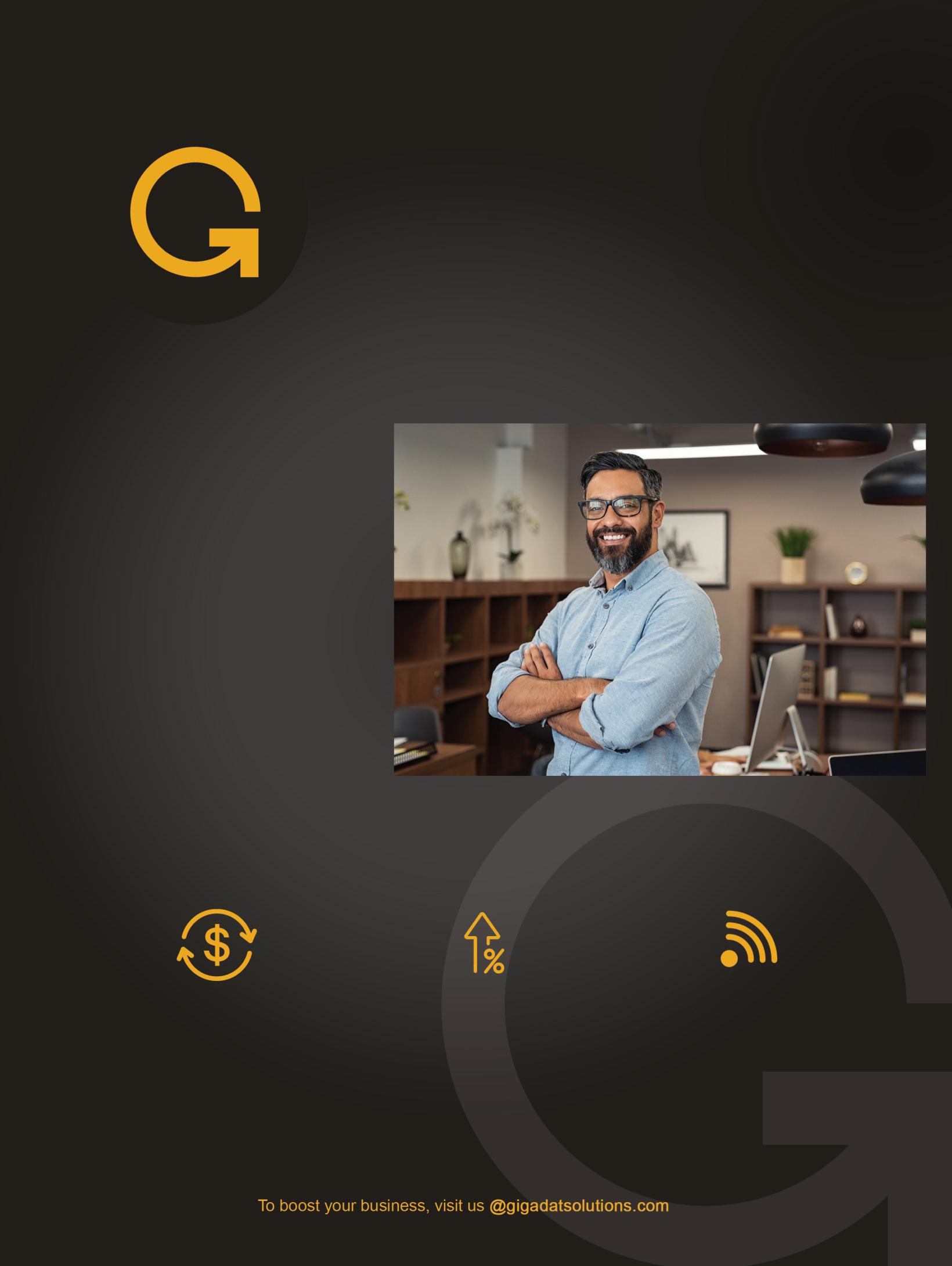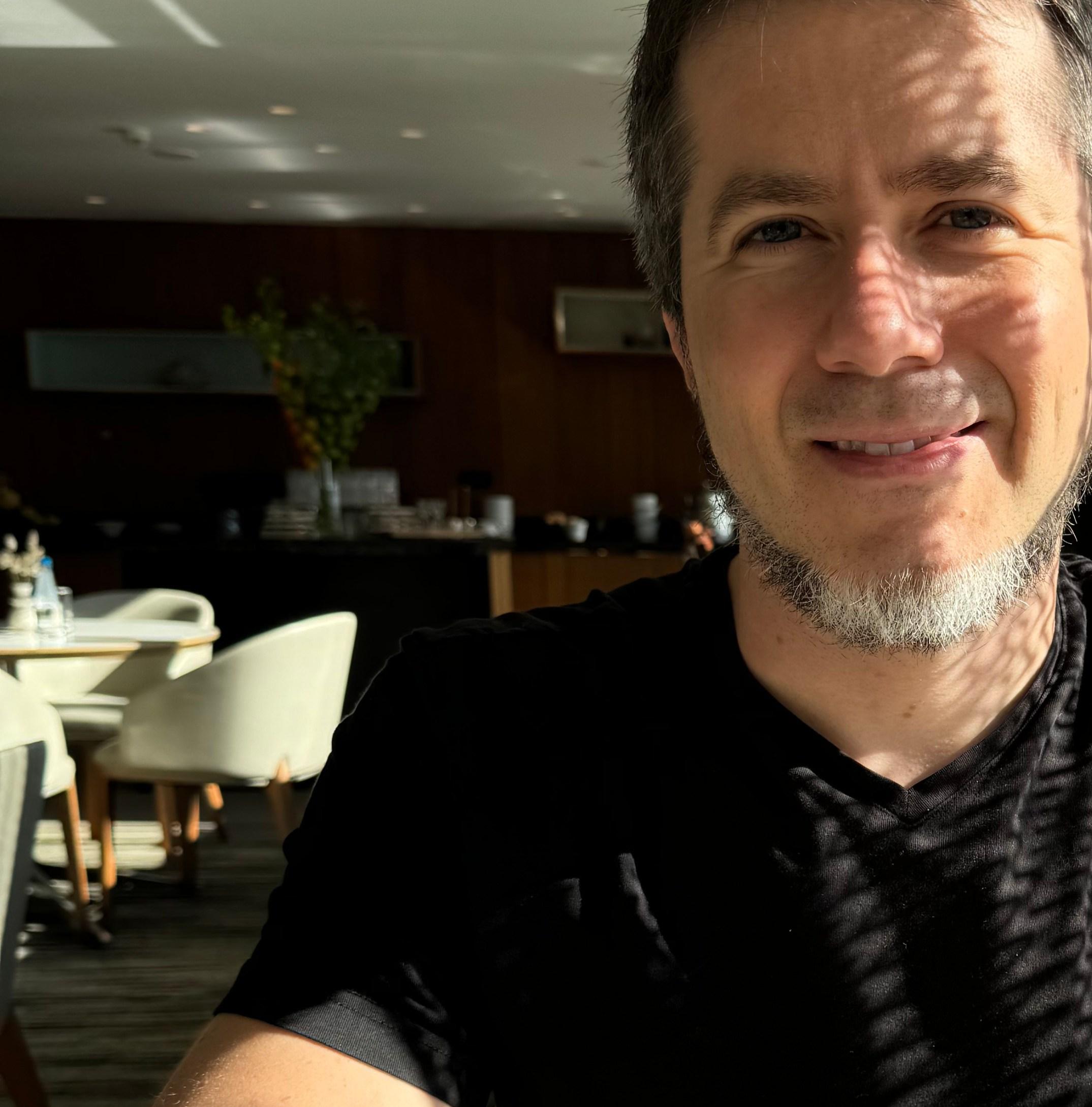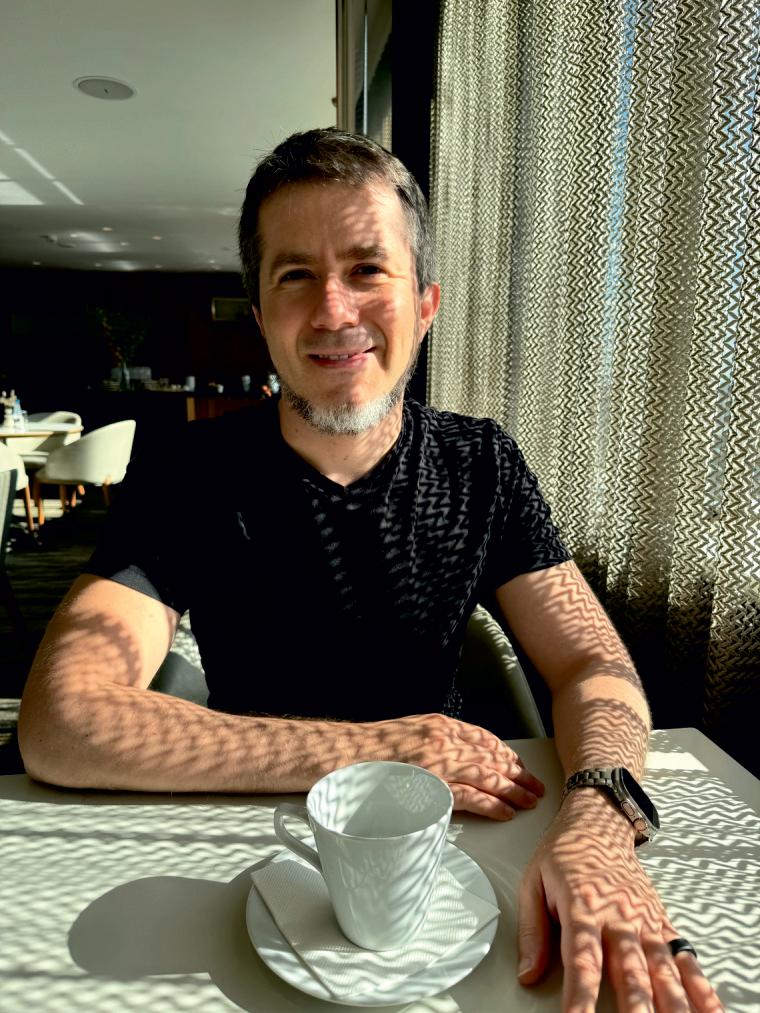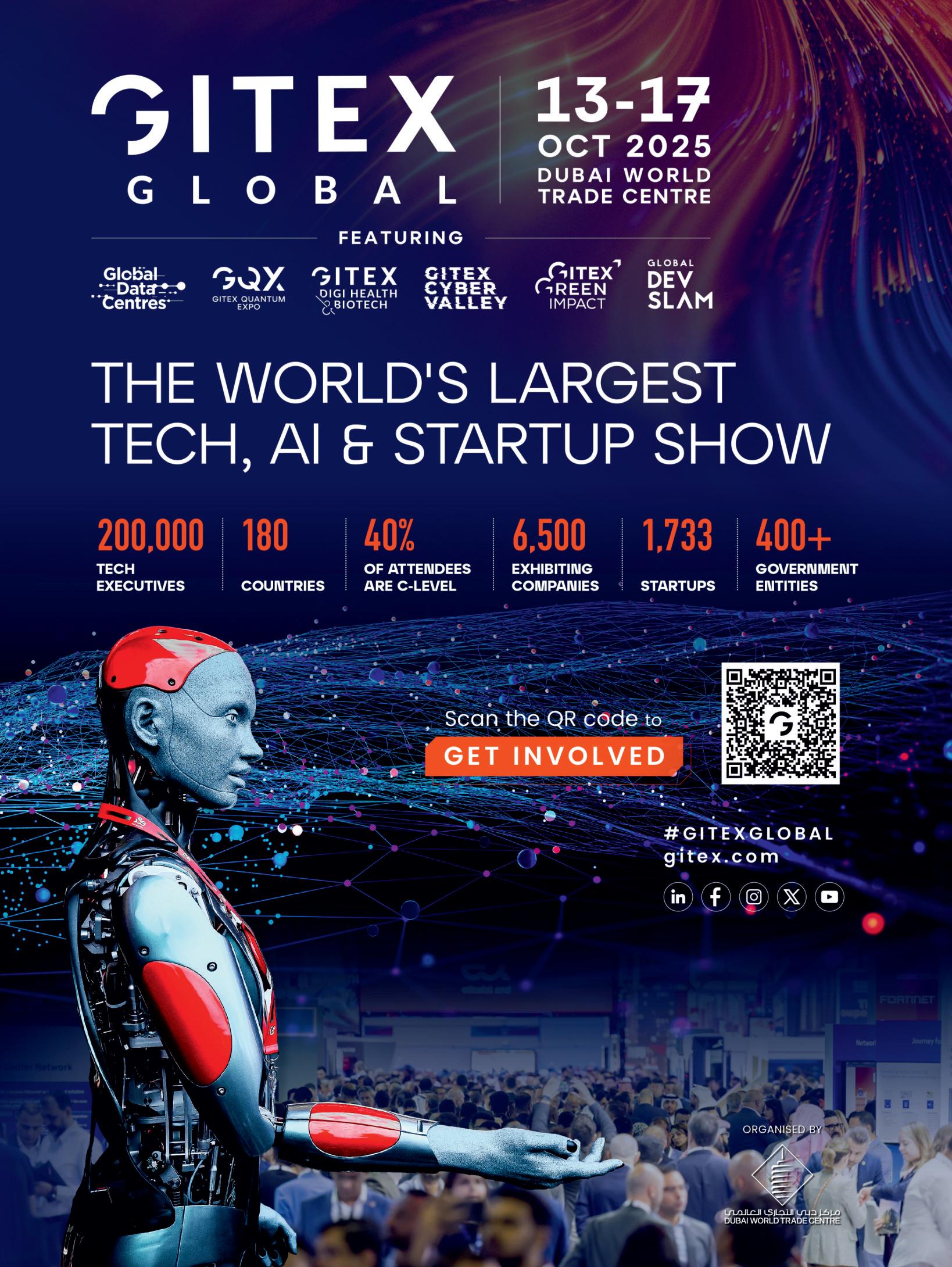












Inaworldthatisconstantlyevolvingwhereinnovation,
resilience,andauthenticityarethenewcurrenciesof success—ittakesarareblendofvisionandactionto standapart.ThisInsightsSuccessedition, Most Admired Personality in 2025,celebratesonesuchindividualwhose lifeandworkembodytheseveryqualities:Tiz Gambacorta.
Heisnotjustanameinthedigitalworldhe’saforce.A pioneerinthefieldsofdirectresponsemarketingand entrepreneurialleadership,hehasconsistentlyredefined what’spossibleforindividualsseekingbothfinancial freedomandmeaningfulimpact.Fromhumblebeginnings tobecomingagloballyrespectedfigure,hisstoryisoneof transformationpoweredbypurpose.Whatmakeshimtruly admirable,however,isnotonlyhisachievements,buthis unwaveringcommitmenttohelpingothersunlocktheir potential.
Throughthisfeature,wetakeacloserlookatthevalues thatdriveshimlike,integrity,curiosity,andarelentless pursuitofexcellence.Whethermentoringaspiring entrepreneurs,developingpowerfulonlineeducation platforms,oradvocatingforauthenticleadership,his influencereachesfarbeyondbusinessmetrics.Itshapes lives.
Intoday’shyperconnectedyetoftendisconnectedage, personalitieslikeTizremindusthatleadershipisnotjust aboutleadingpeoplebutaboutliftingthem.Hisjourney speakstodreamersanddoersalike—thosewhodareto thinkdifferentlyandactcourageously
Weareproudtodedicatethiseditiontohim,amanwhonot onlycommandsadmirationbutinspiresit.Mayhisstory igniteadeeperbeliefinyourowncapacitytolead,impact, andtransform.
Happy Reading!

F E A T U R I N G

A Pioneer of Purpose-Inspired Innovation and Leadership
Regulatory Challenges and Opportunities in Fintech Innovation
18
The ROI of Investor Education Empowerment

Art
Business
Business
Digital
Co-designer
Marketing




















Cofounder | 8020Media&TechEcosystem

A PIONEER OF PURPOSE-INSPIRED INNOVATION AND LEADERSHIP
Inanerawherechangehappensfastandcompetitionis ever growing; a special breed of leaders stands out because of their ability to bring together financial acumen and a strong commitment to social purpose. Not only are they incredibly skilled at what they do, but they also redefine success by blending values, entrepreneurial action, and a deep commitment to service Tiz Gambacortaisonesuchperson—alivingembodimentof purposeful leadership, illustrating how vision, perseverance, and compassion can define industries and motivategenerations.
Tiz was born in the early 1980s to an internationally experienced family He led an unusual life in the early years. His father was a diplomat, and his mother was a United Nations interpreter.They created a world in which languages, cultures, races, and religions came together at thedinnertable.Constanttravelingbetweenthecontinents gavehimcosmopolitanismandflexibilitysincechildhood.
Life at home, though cosmopolitan, was humble. There were no crises or moments of drama—just the constant urging to adapt to a new country and culture as a result of Tiz’s dad frequent relocation requirements. His parents, though supportive, avoided the media frenzy over highlevelacademicsuccess,insteadkeepingtheachievementof a‘simple’collegedegreeasamilestonetoeventualsuccess in life. This controlled mixture of freedom and limited expectationssomehowenabledTiztofindaninnernatural motivationandhungerforachievementthatwouldbecome thehallmarkofhisnextfewyears.
Tiz did not have an academic journey of precocious greatness.Hewasarun-of-the-millschoolstudent,withno stellar grades that would normally lead to starry-eyed opportunities. However, during his early university years, therewasonesuchturningpoint:herealizedthattogetinto a coveted investment banking job, better study habits and lesspursuitofextra-curricularactivitieswereneeded.
Driven by this realization, Tiz rededicated himself as a scholar, studying harder than others through sheer effort andwill.Aftergraduatingwithtopmarksayearearlyfrom his cohort in Rome, he studied mathematics at Imperial College London, Business Administration at Oxford University and also Business Administration at Harvard BusinessSchool.
“ “ I am on a mission to empower people with the tools to invest wisely and confidently.
Hisearlysuccesseslaidthegroundworkforacareerrisethat was meteoric in nature. This time of hard work and selfapplication yielded a principle that would serve him throughouthislife—successismoreafunctionofhardeffort andprudentpurposethanofnativeability
Tizstartedhisinvestmentbankingcareeratage21,departing Rome for London. He soon made a name for himself in the delicate art of oil and gas derivatives trading, an extremely technicaloperationthatrequiresanalyticalstrengthasmuch asthecapacitytoendureviolentmarkets.Whereasothersin theoutsideworldonceconjuredbankingasastaidcareer,Tiz flourishedinthechaoticandloudworldsofthebank’strading floors in London, New York, Singapore and Tokyo, dealing with huge sums and making risky but often profitable transactions.Byhislatetwenties,hewasoneoftheyoungest VicePresidentsinhisdivision,havingmanagedjustshyof$1 billionincustomerassets.Itwasatestamenttohisreadiness to take risks and fear no difficulties others would shy from. However, even amidst financial prosperity, Tiz felt the confines of a career lived out the limited spheres of tightly stackedcomputerscreensandstockchartsonatradingfloor.
The watershed moment in Tiz's career was the 2008–2009 global financial crisis.Amidst record losses for the banking industry,hesawthecollapseofeventhebest-housedfinancial institutionslikeLehmanBrothers,firsthand.Whenhisunitat Barclays was closed due to catastrophic losses in Spain,Tiz was forced to make a decision between returning to the comfortable lifestyle of finance or to traverse the untrodden pathofentrepreneurship.



Choosingthelatter,heoptedfortheuncertaintyofanewstart, leveraging the experience and know-how gathered during yearsinbankingtoseeknewfrontiers.Thisphaseoftransition broughttolightaprevailingtrendinhislife—theembracing ofcalculatedriskandreinventionoftheselfamidstadversity.
Unlike anything he was taught in business school, Tiz's ventureintoentrepreneurshipcamebychance.Aspur-of-themomentinvitationtoanentrepreneurshipseminar,whichhe wenttounwillingly,exposedhimtotherealmofwebcontent creation and monetization. Enchanted by the prospect of disseminating knowledge through new technologies, he startedcreatingeducationalcontentforretailinvestorsbased onhisextensivetradingandriskmanagementexperience.
Theventurewasgrueling—producingupto12articlesaday, buildingupanaudiencefromzero,dealingwiththetechnical challengesofwebsitesandridingouttheinitialchallengesthe nascent online commerce industry. But Tiz's diligence was rewarded when his columns started gaining popularity, with increasing numbers of students packing in to acquire do-ityourself insights and education on investing. Building this grassrootsclientelelaidtheseedbedforhissuccessfulmedia andtechnologybusinessoftoday.
“
“ My story is about dreaming big and acting even more boldly.
At the heart of Tiz's entrepreneurial ambition is Eunice, an organizationdedicatedtoshakinguphowindividualslearnto investandaccessinvestmentopportunities.Seeingthatthere wasn'taone-stopshopforlearningaboutinvesting—similar toanAmazonorAlibabaforecommerce—Euniceleverages technology to give users content and suggestions based on theirinterests.
Withahighlyadvancedrecommendationalgorithmpowered by user behavior and machine learning, Eunice generates personalized educational content and newsletters that are specificallydesignedtoaddresssubscriberinterestsinstocks, commodities, or alternative investments. Not only does this enable investors to make informed choices, it also advances the wider issue of financial literacy in an increasingly competitivefinancialmarkets.
Tiz'sfunctionwithinthecompanyhaschangedovertheyears, fromactivemanagementtothecurrentstrategic,vision-based function.Hispurposeasamarketingvisionaryhasnotvaried: to equip individuals with the tools and education it takes to conductdisciplined,strategy-basedinvesting,abovethenoise and din of stock-picking frenzies for enduring returns investorscanrelyon.
ForTiz,strivingforgreatnessisaboveandbeyondtheusual dichotomies of work and existence. He shrugs at the idea of "work-life balance" as a myth for those who seek extraordinary outcomes Rather, he promotes "work-life integration," where commitment to one's calling seamlessly blendsinwithpersonalsatisfaction.

Interludesofhyper-professionalintensityyieldtointentional time-outs for rest and reflection so that there may be high performance as well as creative renewal. Tiz's attitude is holistic—in a general way, he considers co-workers to be friends, business travel an opportunity to bond, and work problems an incentive to develop himself This holistic attitudenotonlymaintainshismoraleatahighlevelbutalso addsrichnesstothefabricofhisrelationships,bothonandoff thejob.
Tizhasadiscerningandcultivatedsenseofrisk.Withhealth andpersonalwell-beingmatters,heiscautious.Yetthereisno reasonwhyhecannotbeadventurousinhisenterprise,willing to invest large amounts of resources into causes that he believesin.Hisconfidenceinjudgmentisaccompaniedbya remarkable serenity—never losing any sleep over adversity, evenattimesofgreatestchallenge.

Innovation,toTiz,ismoreamatter of gradual evolution than revolution He is more comfortableworkingwithwhathe alreadyknowsandtohoneit,with established strengths instead of seeking elusive breakthroughs. Thispragmaticstyle,governedby subject matter expertise and experienceinthemarketplace,has allowed him to deliver on a consistent basis without taking unnecessaryrisks.
Philanthropy and Purpose: ServiceasaGuidingPrinciple
Aside from professional success, Tiz is most passionate about philanthropy and doing good. He believes in taking direct and positive action delivering for others in times of greatest need, usually in personal and unspoken ways. Service is not about being recognizedforhimbutpuregiving andempoweringpeopleinstead.
Education is the center of his philanthropic initiative. Tiz is a proponent of democratizing knowledge, especially for underservedorunder-privilegedgroups. He advocates for programs that allow the next generations to be gifted with the talent and the mindset required to succeed, believing in education as a moral imperative and a driver of society'sadvancement.
“
“ I believe hard work beats talent every time.
A twin passion for psychology fuels his business and philanthropy approach Tiz laments the absence of psychology and social dynamics training in conventional curriculums, understanding that much of personal and professional upset is fostered by deficits in communication and human behavior knowledge. With his studies and experienceintheseareas,heisworkingtotreattherootcauses and contribute to a more wholistic education of the new generations.
Tiz'sownleadershipisrootedintwofundamentalprinciples. First, he asserts that achievement is largely a matter of hard work—natural ability may give one an advantage, but hard workistherealkeytodistinction.Heinviteswould-beleaders to think less about natural talent and more about developing discipline,toughness,andanunyieldingworkethic.
Second, he invites others to dream big and to align their ambitionswithmatchingeffort.Inotherwords,bigambitions requirenothinglessthanbigeffort.
Tizopenlyacknowledgeshisownpastweaknesstodreambig enough.Hestrivestoencourageotherstodreambigandwork towards objectives with unrelenting dedication. Honesty, he feels, is the sole option in an information-overloaded world with numerous agendas; leaders must be honest with themselves, others and their cause, defying the generally appealingfadsofthemonthandsocialnorms.

Movingforward,Tizoptimisticallygazestowardthefutureif leaders can stay humble and keep themselves grounded in serviceandpurpose.Heimaginesaworldwhereopportunity, coupledwithamorepracticalandlesstheory-basededucation system, are available to all. A world where people are empowered to be their whole best and make meaningful contributionstosociety.
He believes that up-and-coming business leaders and investors will be more balanced, aligning professional ambition and personal growth with social stewardship. By creating ecosystems that bridge these gaps in the current education system, Tiz feels the next generation will be best positionedtoachieveunheraldedimpactandfulfillment.
Tiz'sjourneyfromhighfinancetradingfloorstotheforefront ofentrepreneurialinnovationisaconfirmationofthestrength of his vision, resolve, and service.Throughhis commitment to investor education, giving back, and leadership, he has redefined what it means to succeed in today's world. Tiz Gambacorta's journey is not only one of personal achievement and overcoming health challenges, but a blueprintforsignificantcontribution—acalltodreambig,act boldly,andraiseothersupintheprocess.

The fintech sector has revolutionized the financial services ecosystem, with the emergence of innovative products like mobile payments, blockchain transactions, and robo-advisors Fintech has openedupaccesstofinancialproducts,simplifiedprocesses, and improved customer experiences. Nevertheless, the high velocity of fintech innovation has overwhelmed traditional regulation regimes, bringing with it opportunities as well as challengesforregulators,enterprises,andconsumersalike.
This article discusses the regulatory challenges fintech businesses encounter and the opportunities that come with successfullyovercomingsuchchallenges.
Fintech lies in the area of finance where technology is very dynamic and highly regulated Traditional financial regulations have been designed to cover existing businesses likebanksandinsurancecompaniesandnotleanstart-upsthat have innovative technologies in place. Therefore, fintech firms are more likely to encounter a hodgepodge of varying rules in different jurisdiction with significant compliance concerns.
One of such problems is regulatory clarity. To take an example,theDeFiplatformsandcryptocurrenciesaregrayin the majority of countries. Regulators are not sure in how to classify digital assets: are they securities, commodities, or something different? Such ambiguity leaves fintech companies confused, and they may fail to innovate or even expandduetotheriskofunintentionalregulatorypenalties.
Compliance Costs: Regulation is a capital-intensive process of compliance, particularly in the case of small startups. Know-your-customer(KYC)rulesoranti-moneylaundering (AML) rules are some examples of regulations that require highly advanced systems to monitor transactions and verify identities. Small fintech firms may find such requirements overwhelming and invest more resources in compliance, ratherthanfintechinnovation.
Regulatory Fragmentation: Fragmentation of global standards is inefficient. A business that is a fintech and operates across multiple countries might be faced with conflicting regulations and this increases the complexity of thebusiness.

Innovation Speed: The rapid fintech change often exceeds the regulatory refresh. Ethical or legal concerns that might not be accommodated in preexisting frameworks also occur in cases ofAIandmachinelearningtechnologies used to assess credit or engage in antifraud processes. To balance consumer protection with the promotion of fintech innovation is a tricky balancing task, to whichregulatorsmustrespond.
ConsumerProtectionandCybersecurity: Fintech'sdependenceondigitalplatforms heightensthepossibilityofdatabreaches and fraud. Regulators are under the obligation to provide consumer protection while not suffocating innovation. Opportunities in Regulatory
Adaptation
Despite these challenges, the dynamically evolving regulatory landscapeisanexcellentopportunitythat fintech companies can exploit by acting strategically Forward-looking companies can turn regulatory compliance into a competitive advantage and regulators themselves are exploring new approaches to allow the development of fintech.
Regulatory Sandboxes: Majority of the jurisdictions have developed regulatory sandboxes, which allow companies in the fintech industry to test innovations in a controlled environmentwithrelaxedrules.Thismodelallowedstartups to experiment with new products and the United Kingdom was the first to use this model, with the Financial Conduct Authority (FCA) ensuring the risks are closely monitored. Sandboxes are a win-win: the fintechs have the chance to polish their offerings and the regulators get a real-time look intonewtechnologies.
Regulatory Cooperation: By cooperating with regulators in advance, fintech companies can affect policy-making. Firms can also encourage balanced regulations that would enable fintechtothrivebyparticipatinginconsultationsorindustry forums.Asanexample,thecollaborationsbetweenthecentral banksandfintechsledtothedevelopmentofthecentralbank digital currencies (CBDCs), which combine innovation and regulation.
Technology-Driven Compliance: Fintechs can use technology to simplify the process of compliance. RegTech (regulatory technology) tools, such as AI-assisted AML surveillance or audit chains based on blockchain, reduce complianceexpensesandoptimizetheirperformance.These arenotonlyregulatorycompliantsolutionsbutalsoenhance transparencyofoperationsandbuildconsumerandregulatory trust.
Inordertotakeadvantageoftheseopportunities,fintechfirms andregulatorsneedtobeonthesamepage.Regulatorsneedto seek proportionality ensuring rules that safeguard consumers do not choke fintech innovation. Harmonized rules across jurisdictions may help minimize compliance burdens, allowing fintechs to scale effectively. Fintech firms should meanwhile invest in compliance infrastructure and interact with regulators up-front to look into anticipated changes.
Newtechnologiesalsonecessitatenewregulatorystrategies. To illustrate, financial services supported by AI need standardsontransparencyandbiasreduction,andblockchain technologies need well-established guidelines on the classificationofdigitalassets.Regulatorsmustdrawlessons from the agility of fintech and employ data-driven and iterativepolicymakingmethods.
The fintech industry has reached a crossroad, where regulations and opportunities co-exist. The complexity of compliance may act as a handicap of growth, but it also influences innovation in RegTech and cooperation between regulatorsandbusiness.Byembracingregulatorysandboxes, byusingtechnologytoadheretoit,andbybeingproactivein approachingpolicymakers,fintechcompaniesshouldbeable tosuccessfullynavigatethislandscape.Thejobofregulators istocomeupwithdynamic,forward-lookingregulationsthat both protect consumers and encourage fintech innovation. Collectively, these initiatives can help ensure that fintech keeps flourishing, bringing about revolutionary financial solutionstoaworldwideclientele.

With the complexity of today's financial situation, InvestorEducationEmpowerment'ssignificance cannot be overemphasized. Empowering individuals with the right information and capacity to make goodinvestmentchoiceshashighreturns,botheconomically and socially The investment return on investor education is notlimitedtoindividualwealthaccumulationbutgoesahead tocontributetoeconomicstability,inequalityreduction,and responsiblefinancialconduct.
This article discusses the multilateral advantages of educating investors and its quantifiable benefits to individuals,markets,andsocietyasawhole.
FinancialLiteracyasaCornerstone
Fundamentally, investor education is all about establishing financialliteracy—avitalcompetenceinatimeofevermore complicated financial products. Most people lack the underlying information to make their way through investments,fromcomprehendingriskanddiversificationto interpretingmarkettrends.
Investor education responds to this by educating people on concepts such as compound interest, asset allocation, and managingrisk.Forinstance,learningaboutcompoundingcan inspire early and regular saving and investing, which can massivelyaugmentlong-termwealth.
Perhaps the most direct benefit of investor education is the avoidanceofexpensiveerrors.Ill-informedinvestorstendto becomevictimsofspeculationscams,high-costproducts,or market timing blunders. Educating investors how to screen financialadvisors,readprospectuses,andspotwarningsigns isprotectionfromlosses.
Forexample,learningaboutactiveandpassiveinvestingcan costinvestorsthousandsofdollarsinfees.Decadeslater,the savings add up, with the effect stimulating ROI directly. Learning also prevents investors from making impulsive choices,likesellinginapanicduringmarketcrashes,which canlockinlossesinsteadofweatheringvolatility
Educating investors is an effective way of achieving economic mobility, especially for marginalized populations. Throughout history, financial literacy has been in unequal distribution,whichhashelpedsustaininequalitiesofwealth. With democratization of education, members of different backgrounds are able to access wealth-generating opportunities such as stock markets, pension funds, or property.
Thisempowermentextendstogenerationalwealth.Educated investorsaremorelikelytoteachtheirfamiliesaboutfinancial planning, creating a ripple effect. This not only improves individual financial security but also reduces reliance on publicassistance,benefitingsocietyasawhole.
The overall market stability is also considered to be the investoreducationROI.Informedinvestorsalsomakesmart choicesandthisreducesthevolatilityofthemarketwhichis drivenbythemob.Duringthe2021memestockmania,retail investors who were seemingly uninformed caused irrational swings in the price of certain stocks like GameStop to their own detriment in many cases. Education will introduce disciplined investing and encourage the basics-based investingratherthanspeculation.
Moreover, informed investors demand responsibility and clarityofthefinancialinstitutions.Suchpressuremayleadto better corporate governance and ethical financial products. Investorswhoareeducatedthuscontributetowardsastronger andresponsiblefinancialsystem.
Besides the monetary gains, investor education gains psychologicalandsocialreturns.Theeducationallowsoneto control finances and manage the stress level reducing the stress level and improving the well-being. Empowered investorsarealsoexpectedtoengageincivilactivitiessuchas votingorinvestmentinthesocietytherebyenhancingsocial cohesion.
Moreover, education inculcates the ambiance of agency Whenindividualsunderstandfinancialsystems,theywillfear the institutions less and be more in a position to argue their owncases.Thiskindofempowermentcanbringanendtothe viciouscyclesofmistrustanddisengagement,particularlyin communities that are suspicious of financial markets due to theirpastexploitation.
The ROI on investor education is measured with both direct and indirect benefits in mind. Immediate benefits are more savings,morereturnsoninvestmentandpreventionoflosses through fraud or mismanagement The less measurable, although not less significant, indirect benefits include improved mental health, enhanced financial mobility, and a healthiermarket.
Investment in education also yields dividends to the governments and institutions. It also benefits the employers themselvesinthattheemployeeswhoarefinanciallyliterate aremoreproductiveandlessoccupiedwithmoneymatters.
While scaling investor education is a positive, it's challenging Access is still the problem, as too many programsareexpensiveornotdesignedforbroadaudiences. Technologyistheanswer:onlineplatforms,apps,andgamebased learning solutions can provide education inexpensively Apps such as Investopedia's Simulator, for instance, enable users to experiment with investments using simulatedportfolios,gainingconfidencewithoutrisk.
Anotherisgettingpeopleinvolved.Financialliteracycanbe boringorscary.Creativesolutions,likeembeddingfinancial ideas in school curriculum or utilizing social media personalities to drive literacy, make learning more fun Collaborations between governments, NGOs, and financial institutionscanhelpincreasescopeandinfluence.
TheROIofInvestorEducationEmpowermentisirrefutable. By empowering people with the education to navigate financial markets, we unlock individual wealth, economic mobility, and market stability. The effects cascade outward, alleviating inequality, promoting ethical behavior, and increasing societal well-being. In a world where financial choicesdeterminefutures,investingineducationisnotonlya tactic it's a mandate Governments, institutions, and individualsmustmakethisempowermentapriorityinorder tocreateamoreprosperousandequitablefuture.












For Subscrip�on: www.insightssuccessmagazine.com
www.x.com/insightssuccess

